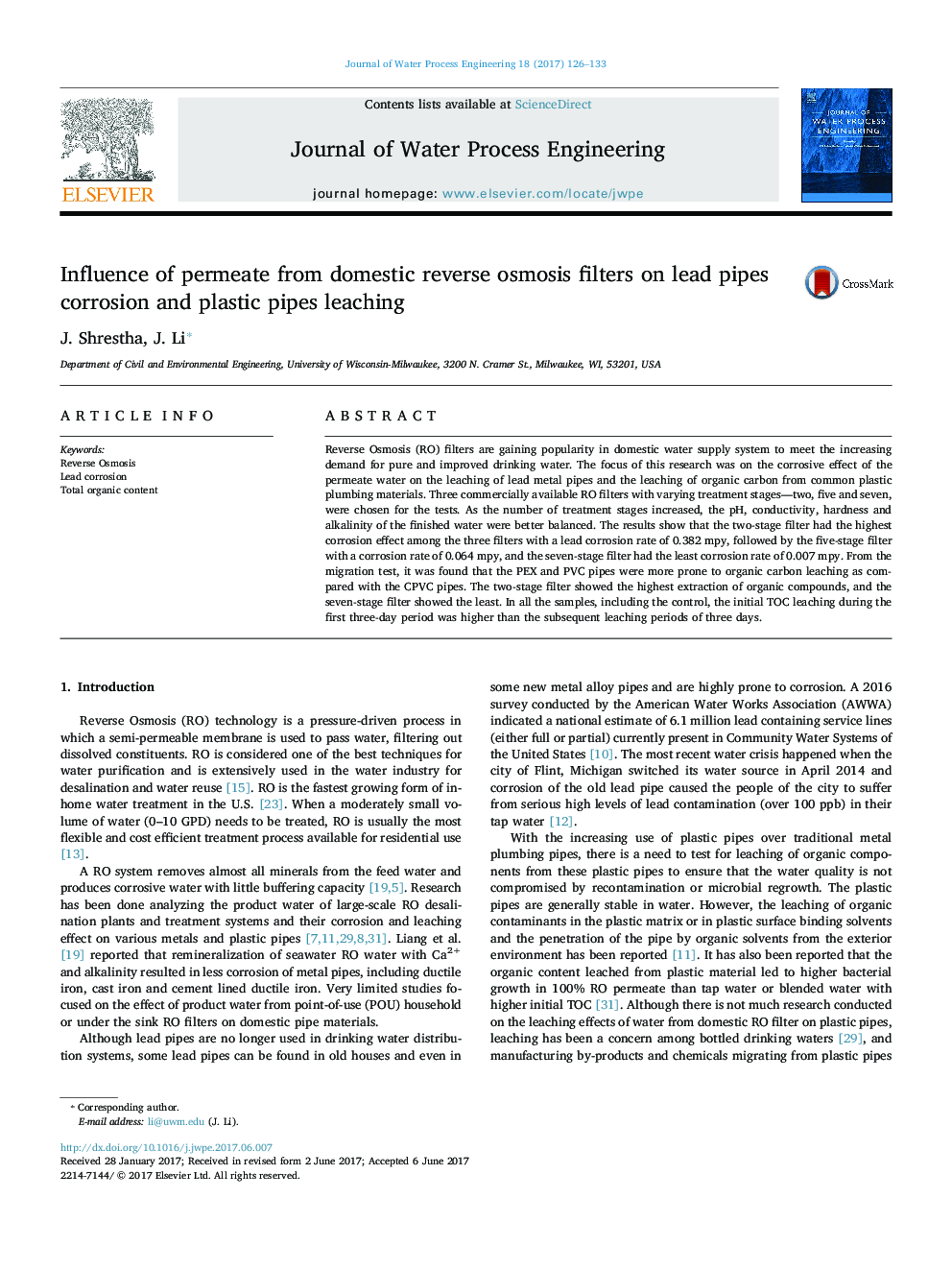| Article ID | Journal | Published Year | Pages | File Type |
|---|---|---|---|---|
| 4910036 | Journal of Water Process Engineering | 2017 | 8 Pages |
Abstract
Reverse Osmosis (RO) filters are gaining popularity in domestic water supply system to meet the increasing demand for pure and improved drinking water. The focus of this research was on the corrosive effect of the permeate water on the leaching of lead metal pipes and the leaching of organic carbon from common plastic plumbing materials. Three commercially available RO filters with varying treatment stages-two, five and seven, were chosen for the tests. As the number of treatment stages increased, the pH, conductivity, hardness and alkalinity of the finished water were better balanced. The results show that the two-stage filter had the highest corrosion effect among the three filters with a lead corrosion rate of 0.382 mpy, followed by the five-stage filter with a corrosion rate of 0.064 mpy, and the seven-stage filter had the least corrosion rate of 0.007 mpy. From the migration test, it was found that the PEX and PVC pipes were more prone to organic carbon leaching as compared with the CPVC pipes. The two-stage filter showed the highest extraction of organic compounds, and the seven-stage filter showed the least. In all the samples, including the control, the initial TOC leaching during the first three-day period was higher than the subsequent leaching periods of three days.
Keywords
Related Topics
Physical Sciences and Engineering
Chemical Engineering
Chemical Engineering (General)
Authors
J. Shrestha, J. Li,
